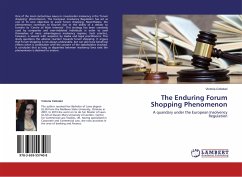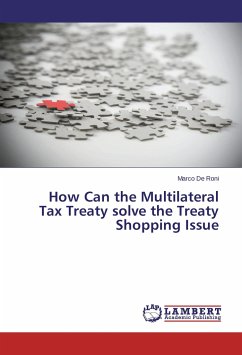One of the most contentious issues in cross-border insolvency is the 'forum shopping' phenomenon. The European Insolvency Regulation has set as one of its core objectives to avoid forum shopping. Nevertheless, the phenomenon continues to flourish due to the ability of a debtor to transfer its 'Centre of Main Interests'. This strategy has been creatively used by companies and over-indebted individuals in order to avail themselves of more advantageous insolvency regimes. Such practice, however, is viewed with suspicion by media and legal practitioners. This study questions the adverse reaction towards forum shopping. It argues that forum shopping is not always undesirable, but can also have beneficial effects when is undertaken with the consent of the stakeholders involved. It concludes that as long as disparities between insolvency laws exist the phenomenon is destined to endure.








